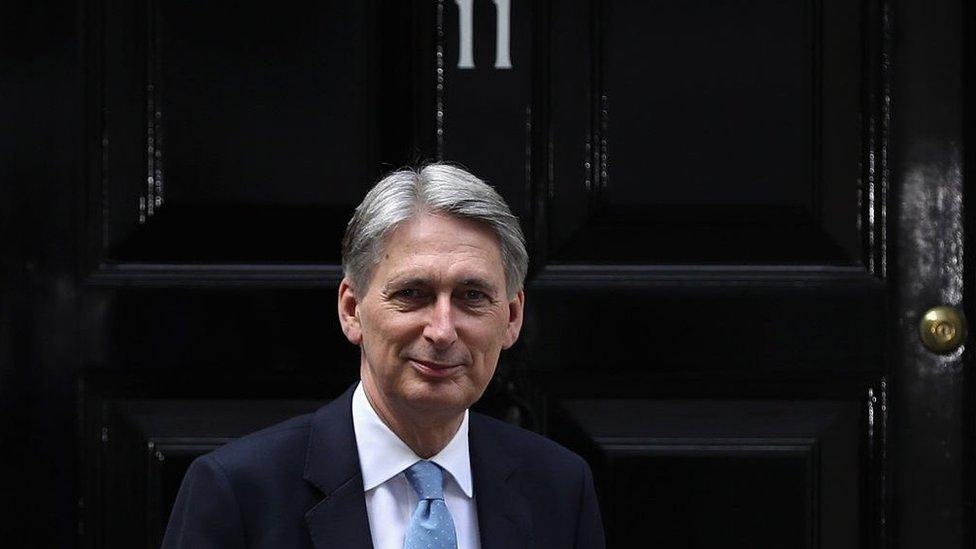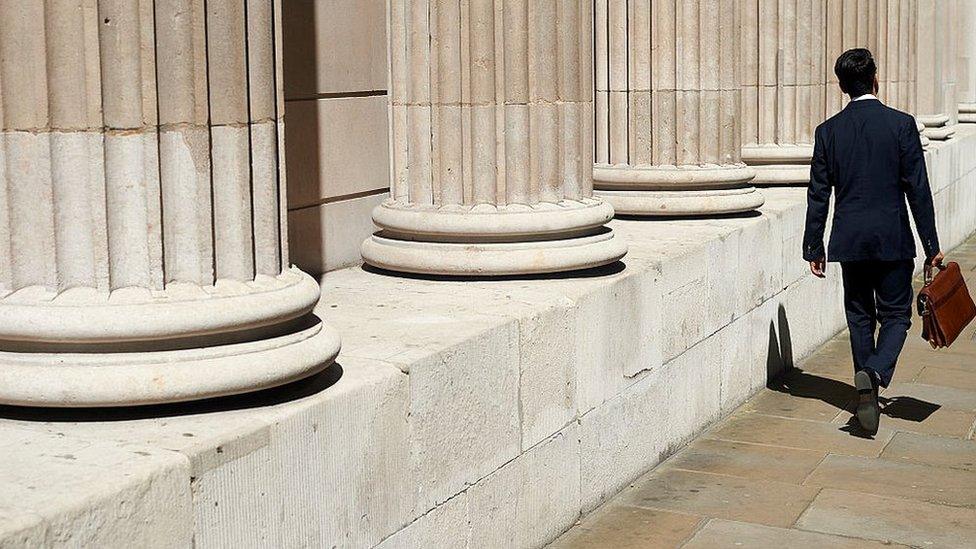A new day, a new Chancellor: A new economic policy?
- Published

"Increasing taxes is not the way to support the economy," says new Chancellor Philip Hammond
Britain's economic policy has changed radically almost overnight.
In all the fuss and dust surrounding the referendum, the Tory leadership campaign and the creation of a brand new cabinet it has been easy to lose sight of this fact.
George Osborne has been chancellor of the exchequer for six long years of austerity.
He and his government told us time and again that balancing the budget was their first and most important job.
Now without even an election that policy has been abandoned, the government's aim to bring in more in tax than it spends by 2020 has been dropped, but what has replaced it?
Mr Hammond has given us some clues but to be perfectly honest we will not have the complete picture until the Autumn Statement later this year.
However, the new chancellor has already declined to say when the government's budget will be in surplus, if ever.
Funded by borrowing
Mr Hammond has also said that "increasing taxes is not the way to support the economy, maintain consumer confidence and to make sure that we continue to grow the economy in future".
Nor is it likely that a massive round of new spending cuts is going to help the economy at the moment.

The government may have to borrow another £50bn a year by the end of this parliament
In fact with falling business and consumer confidence, worries over delays or even the cancellation of private investment and a construction industry that looks to be slowing down; many would see an increase in government investment as the obvious solution.
Sajid Javid, the former business secretary, has called for the government to fund an extra £100bn of infrastructure spending over the next five years.
Unless there are huge tax rises or spending cuts that money will have to be borrowed.
Fortunately the chancellor can now borrow at historically low rates, for long periods of time. The markets are so jittery they are willing to put their cash into ultra-secure government bonds for little or no return.
But it is not just money for new infrastructure that the government will have to find, with the economy likely to slow or even go into a recession its existing borrowing targets are meaningless.
Distinctly overcast
A cautious estimate is that the government will have to borrow another £50bn a year by the end of this parliament just to balance the books.
Any borrowing to help boost the economy will be on top of that. Just last month that would have been denounced by the chancellor and his cabinet colleagues as reckless, dangerous and counter-productive.
That is how much things have changed in the last few weeks.
To borrow one of George Osborne's favourite sayings "you have to fix the roof when the sun is shining", and these huge changes in economic policy suggest that the government's forecast is looking distinctly overcast.